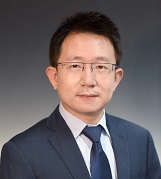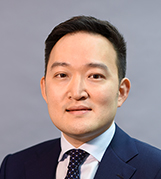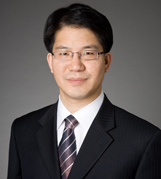Kobre & Kim's Cross-Border Disputes Team
March 14, 2024
How Activist Investors Can Protect Their Rights Amid Family Succession Struggles at Korean Chaebols
Activist investors are seeing more opportunities in Korea, but corporate succession disputes involving chaebols – including a current dispute in LG – remain a source of risk. Family struggles can lead to attempts at corporate changes that conflict with minority shareholders’ interests. Investors should work with international counsel to protect their rights and maximize their returns.
As recently covered in the Financial Times, opportunities for activist investors in Korea have expanded. Just in February 2024, Korea’s Financial Services Commission unveiled its Corporate Value-up Program to improve corporate governance and prioritize shareholder returns. However, as an ongoing corporate succession dispute involving the Korean chaebol LG demonstrates, family struggles over control can easily lead to attempts at corporate changes that are not aligned with minority shareholders’ interests.
Global and domestic investors, including activist funds, should be aware of the risks and understand their options in Korea. By working with international counsel experienced in corporate governance matters in Korea – including in working with steering committees of equity holders and special investigative committees, and in deploying emergency actions and other special strategies – they can protect their rights and maximize their return on investment.
Family Succession in Chaebols
The former chairman of LG passed away in 2018 without a will. This has led to an ongoing power struggle with his widow and two daughters on one side, and his heir – his adopted nephew and current chairman – and other LG executives on the other side. As part of the current chairman’s consolidation of control, he spun off five LG affiliates into a new holding company for one of the former chairman’s brothers to run, a move that a U.S.-based fund unsuccessfully protested.
LG is not the only chaebol with personal and family drama intersecting with issues over corporate control. Samsung’s executive chairman is accused in a criminal case of allegedly breaking the law to clear the way for the merger of two affiliates that strengthened his control of the company. The chairman of SK is entangled in a divorce, with his former wife appealing a ruling by a Seoul court that did not award her any of his 17.5 percent stake in the company.
How Can Activist Investors Protect Themselves?
Complex disputes and restructuring events around family succession can be a source of risk and uncertainty for shareholders of these chaebols. The intricacies of the local capital markets and legal practice mean activist investors need to tread carefully when they want to exercise or protect their rights. Creative strategies can maximize the chances of success:
- Make Your Own Move. Proposing a reasonable and economically attractive competing shareholder resolution can help secure the attention and support of other shareholders and proxy advisory firms. Beyond satisfying the holding requirements under Korean law (i.e., for listed companies, either (i) 0.5% of total outstanding voting shares plus a six-month holding period, or (ii) 3% of the total outstanding voting shares), one could consider a difficult but more aggressive strategy such as proxy solicitation for a proposed resolution.
- Find Domestic Allies. Many Korean institutional investors hold significant stakes in these chaebols and have recently developed and published voting guidelines and investment philosophies, including their version of stewardship codes. Activist investors can open dialogues with and potentially gain support from these funds – including the Korean National Pension Service, as well as local Korean funds managed by institutional asset management firms like KB – by shaping shareholder proposals along those lines.
- Generate Public Support. An effective public relations campaign can be an essential ingredient in persuading other local and overseas shareholders. One avenue is to work with local Korean funds to find diverse communication channels. The campaign should have precise messaging supported by verifiable facts and data that reflect upcoming inflection points. At the same time, activist investors should also manage PR risks, ensuring their messaging fully complies with local laws and accounts for local conditions. For example, some Korean media may be affiliated with or influenced by a target company or family. Working with global outlets that are respected in Korea instead may mean that, if coverage is favorable, these local outlets have no choice but to boost the activist investor’s messaging.
- Play Nice. In certain circumstances in Korea, a more cooperative approach may yield a better result, especially if the controlling shareholder views the activist as a potential “white knight.” Some controlling shareholders may be amendable to working with the activist shareholder to become a strategic partner in exchange for concessions, though activists need to be wary of Korean legal risks such as insider trading and “unfair trading” when communicating with management.
With the control of Korean chaebols resting within a single family, internal power struggles can be a source of risk, but also potential opportunity, for shareholders if the interests of some family members clash with those of other family members. By deploying creative strategies that can help gain allies and add appropriate pressure, activist investors can better protect their interests and weather the storm.
About Kobre & Kim
Kobre & Kim is a conflict-free global law firm focused on disputes and investigations, often involving fraud and misconduct. Our team:
- Has significant experience in corporate governance matters in Korea, having led and defended initiatives on the formation and conduct of special investigative committees; organization of steering committees of equity holders to remove incumbent directors outside a regularly formulated election; the serving of statutory notices and pursuit of emergency actions relating to books and records access and related asset-freeze applications; applications for involuntary receiverships and liquidations; and other special strategies to place our clients in a position of strength to negotiate a satisfactory resolution.
- Avoids ongoing client relationships with common industry participants such as chaebols and instead focuses on special-situation engagements, allowing us to offer the most aggressive, creative and independent advocacy even in cases involving numerous, overlapping institutional stakeholders’ interests.
- Includes native Korean-speaking lawyers from our Seoul, U.S. and UK offices assisting clients navigating the Korean market.






